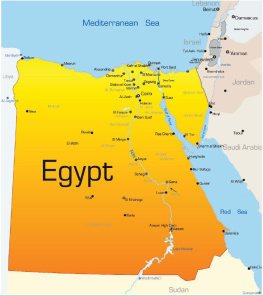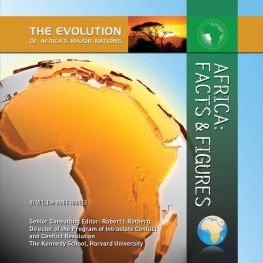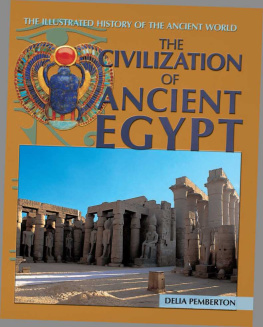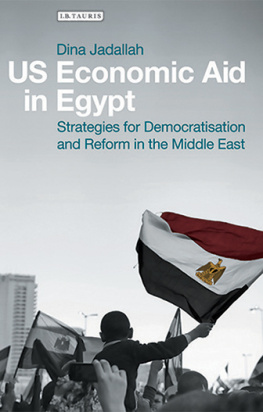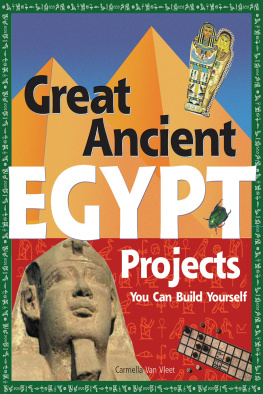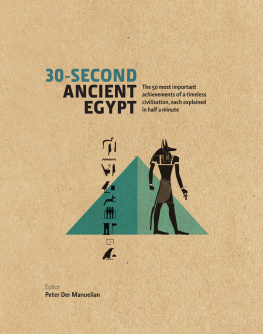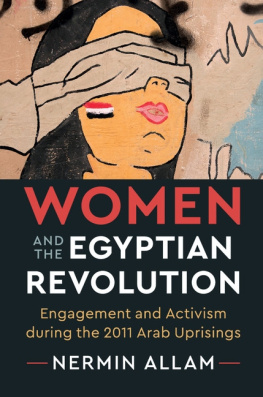THE EVOLUTION
OF AFRICAS MAJOR NATIONS
Egypt

THE EVOLUTION
OF AFRICAS MAJOR NATIONS
Egypt
William Mark Habeeb


 | Mason Crest
370 Reed Road
Broomall, PA 19008
www.masoncrest.com |
Copyright 2013 by Mason Crest, an imprint of National Highlights, Inc. All rights reserved.
Printed and bound in the Hashemite Kingdom of Jordan.
CPSIA Compliance Information: Batch #EAMN2013-9. For further information,
contact Mason Crest at 1-866-MCP-Book.
First printing
1 3 5 7 9 8 6 4 2
Library of Congress Cataloging-in-Publication Data
Habeeb, William Mark, 1955
Egypt / William Mark Habeeb.
p. cm. (Evolution of Africas major nations.)
Includes bibliographical references and index.
ISBN 978-1-4222-2178-5 (hardcover)
ISBN 978-1-4222-2206-5 (pbk.)
ISBN 978-1-4222-9419-2 (ebook)
1. EgyptJuvenile literature. I. Title. II. Series: Evolution of Africas major nations.
DT49.H213 2012
962dc23
2011018503
Africa: Facts and Figures
The African Union
Algeria
Angola
Botswana
Burundi
Cameroon
Democratic Republic of the Congo
Egypt
Ethiopia
Ghana
Ivory Coast
Kenya
Liberia
Libya
Morocco
Mozambique
Nigeria
Rwanda
Senegal
Sierra Leone
South Africa
Sudan
Tanzania
Uganda
Zimbabwe
Table of Contents
Robert I. Rotberg
A frica is the cradle of humankind, but for millennia it was off the familiar, beaten path of global commerce and discovery. Its many peoples therefore developed largely apart from the diffusion of modern knowledge and the spread of technological innovation until the 17th through 19th centuries. With the coming to Africa of the book, the wheel, the hoe, and the modern rifle and cannon, foreigners also brought the vastly destructive transatlantic slave trade, oppression, discrimination, and onerous colonial rule. Emerging from that crucible of European rule, Africans created nationalistic movements and then claimed their numerous national independences in the 1960s. The result is the worlds largest continental assembly of new countries.
There are 53 members of the African Union, a regional political grouping, and 48 of those nations lie south of the Sahara. Fifteen of them, including mighty Ethiopia, are landlocked, making international trade and economic growth that much more arduous and expensive. Access to navigable rivers is limited, natural harbors are few, soils are poor and thin, several countries largely consist of miles and miles of sand, and tropical diseases have sapped the strength and productivity of innumerable millions. Being landlocked, having few resources (although countries along Africas west coast have tapped into deep offshore petroleum and gas reservoirs), and being beset by malaria, tuberculosis, schistosomiasis, AIDS, and many other maladies has kept much of Africa poor for centuries.
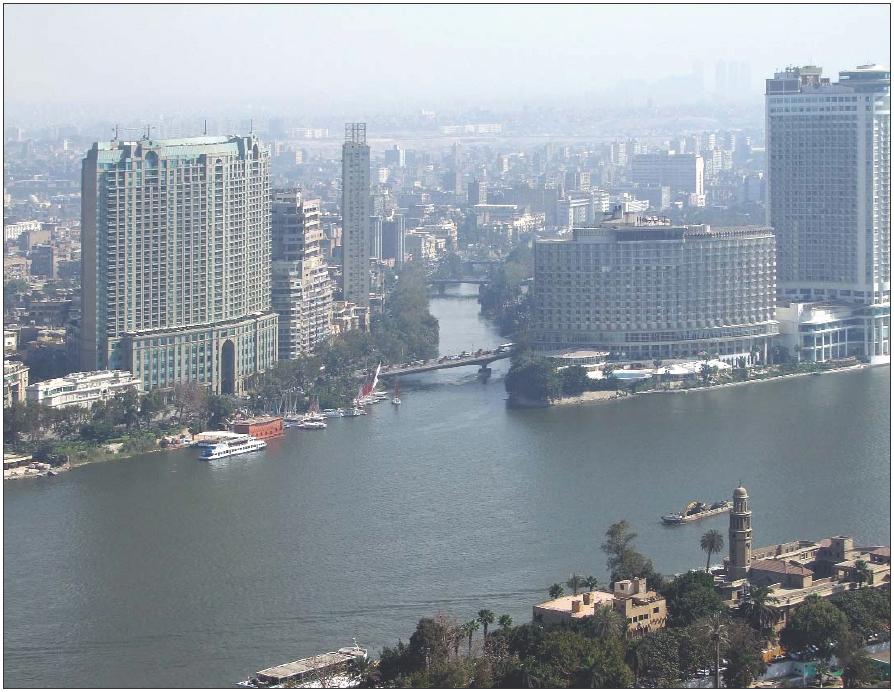
The Nile, the worlds longest river, runs through Cairo, Egypts capital and one of the worlds most croweded metropolitan areas.
Thirty-two of the worlds poorest 44 countries are African. Hunger is common. So is rapid deforestation and desertification. Unemployment rates are often over 50 percent, for jobs are feweven in agriculture. Where Africa once was a land of small villages and a few large cities, with almost everyone engaged in growing grain or root crops or grazing cattle, camels, sheep, and goats, today more than half of all the more than 1 billion Africans, especially those who live south of the Sahara, reside in towns and cities. Traditional agriculture hardly pays, and a number of countries in Africaparticularly the smaller and more fragile onescan no longer feed themselves.
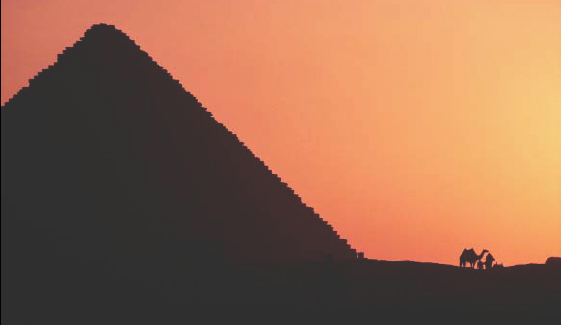
The sun sets over a pyramid at Giza, one of three ancient tombs constructed at the Giza Necropolis site during the 26th century B.C .
There is not one Africa, for the continent is full of contradictions and variety. Of the 750 million people living south of the Sahara, at least 150 million live in Nigeria, 85 million in Ethiopia, 68 million in the Democratic Republic of the Congo, and 49 million in South Africa. By contrast, tiny Djibouti and Equatorial Guinea have fewer than 1 million people each, and prosperous Botswana and Namibia each are under 2.2 million in population. Within some countries, even medium-sized ones like Zambia (12 million), there are a plethora of distinct ethnic groups speaking separate languages. Zambia, typical with its multitude of competing entities, has 70 such peoples, roughly broken down into four language and cultural zones. Three of those languages jostle with English for primacy.
Given the kaleidoscopic quality of African culture and deep-grained poverty, it is no wonder that Africa has developed economically and politically less rapidly than other regions. Since independence from colonial rule, weak governance has also plagued Africa and contributed significantly to the widespread poverty of its peoples. Only Botswana and offshore Mauritius have been governed democratically without interruption since independence. Both are among Africas wealthiest countries, too, thanks to the steady application of good governance.
Aside from those two nations, and South Africa, Africa has been a continent of coups since 1960, with massive and oil-rich Nigeria suffering incessant periods of harsh, corrupt, autocratic military rule. Nearly every other country on or around the continent, small and large, has been plagued by similar bouts of instability and dictatorial rule. In the 1970s and 1980s Idi Amin ruled Uganda capriciously and Jean-Bedel Bokassa proclaimed himself emperor of the Central African Republic. Macias Nguema of Equatorial Guinea was another in that same mold. More recently Daniel arap Moi held Kenya in thrall and Robert Mugabe has imposed himself on once-prosperous Zimbabwe. In both of those cases, as in the case of Gnassingbe Eyadema in Togo and the late Mobutu Sese Seko in Congo, these presidents stole wildly and drove entire peoples and their nations into penury. Corruption is common in Africa, and so are a weak rule-oflaw framework, misplaced development, high expenditures on soldiers and low expenditures on health and education, and a widespread (but not universal) refusal on the part of leaders to work well for their followers and citizens.
Conflict between groups within countries has also been common in Africa. More than 12 million Africans have been killed in civil wars since 1990, while another 9 million have become refugees. Decades of conflict in Sudan led to a January 2011 referendum in which the people of southern Sudan voted overwhelmingly to secede and form a new state. In early 2011, anti-government protests spread throughout North Africa, ultimately toppling long-standing regimes in Tunisia and Egypt. That same year, there were serious ongoing hostilities within Chad, Ivory Coast, Libya, the Niger Delta region of Nigeria, and Somalia.
Despite such dangers, despotism, and decay, Africa is improving. Botswana and Mauritius, now joined by South Africa, Senegal, Kenya, and Ghana, are beacons of democratic growth and enlightened rule. Uganda and Senegal are taking the lead in combating and reducing the spread of AIDS, and others are following. There are serious signs of the kinds of progressive economic policy changes that might lead to prosperity for more of Africas peoples. The trajectory in Africa is positive.
Next page
